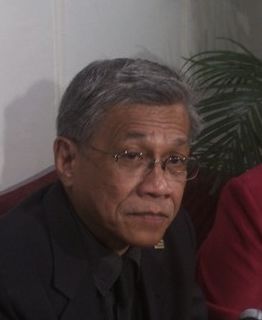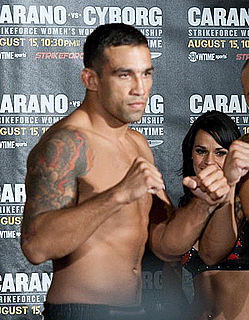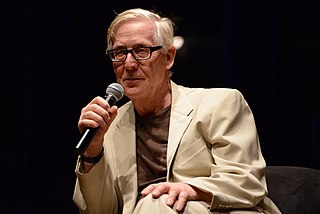A Quote by Walden Bello
Globalization not only has lost its promise but it is embittering many. The forces representing human solidarity and community have no choice but to step in quickly to convince the disenchanted masses that, indeed, as the banner of World Social Forum in Porto Alegre proclaims, “Another world is possible.”
Related Quotes
The term "globalization," like most terms of public discourse, has two meanings: its literal meaning, and a technical sense used for doctrinal purposes. In its literal sense, "globalization" means international integration. Its strongest proponents since its origins have been the workers movements and the left , which is why unions are called "internationals", and the strongest proponents today are those who meet annually in the World Social Forum and its many regional offshoots.
The solidarity which binds all men together as members of a common family makes it impossible for wealthy nations to look with indifference upon the hunger, misery and poverty of other nations whose citizens are unable to enjoy even elementary human rights. The nations of the world are becoming more and more dependent on one another and it will not be possible to preserve a lasting peace so long as glaring economic and social imbalances persist.
My Third-World roots remind me that the vast majority of our fellow human beings live hungry, sick, and uneducated, and that most social scientists, even in that world, ignore that ugly reality. This is why my papers in mathematical sociology deal not with free choice among 30 flavors of ice-cream, but with social structure, social cohesion, and social marginality.
Our normal expectations about reality are created by a social consensus. We are taught how to see and understand the world. The trick of socialization is to convince us that the descriptions we agree upon define the limits of the real world. What we call reality is only one way of seeing the world, a way that is supported by social consensus.
I think that the movement against the World Bank, against the globalization process that is happening, is very positive. We need a globalization, a globalization of people who are committed to social justice, to economic justice. We need a globalization of people who are committed to saving this earth, to making sure that the water is drinkable, that the air is breathable.
The new way of thinking, spawned by the cognitive revolution, shows strong promise. Reversing previous doctrine in science, the new paradigm affirms that the world we live in is driven not solely by mindless physical forces but, more crucially, by subjective human values. Human values become the underlying key to world change.
There are really three players: 'absolutists', for whom it is possible to describe reality as it anyway is; 'constructivists' or 'humanists', for whom there is nothing beyond a world that is relative to human interests and conceptual schemes; and 'ineffabilists', like myself, for whom any describable world indeed exists 'only in relation to man', as Heidegger put it, but for whom, as well, there is an ineffable realm 'beyond the human'.
Nothing like this has been attempted before. (...) It might be called a literary Porto Alegre. That implies a beginning, with much fierce argument and discussion to come. But whatever the outcome of ensuing criticisms or objections, The World Republic of Letters -- empire more than republic, as Casanova shows -- is likely to have the same sort of liberating impact at large as Said's Orientalism, with which it stands comparison.



































